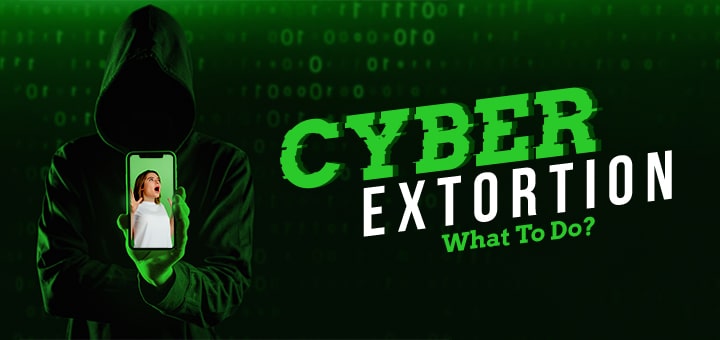Cyber extortion is a growing problem, and it can happen to anyone, anywhere, at any time. Cybercriminals have been using malicious tactics to extort money and personal information from individuals and businesses alike.
Whether it is through ransomware, DDoS attacks, or hacking, cyber extortion can leave its victims feeling helpless and vulnerable. In this blog post, we will discuss what can be done if you are targeted by extortionists.
Can the Police do Anything about Cyber Extortion?
The short answer to the question of whether the police can do anything about cyber extortion is yes, they can. However, the process of investigating and prosecuting cyber extortion cases can be challenging. Cybercriminals often use sophisticated techniques to conceal their identities, making it difficult to identify and apprehend them. Additionally, prosecuting online crimes can be complicated because it usually involves crossing state and international borders.
It is essential to report extortion to the police as soon as possible. Reporting the crime will enable law enforcement agencies to begin an investigation, which can lead to the identification and prosecution of the perpetrator. It is also crucial to preserve any evidence you may have, such as emails, social media messages, or other communications. The more evidence you have, the greater the chances of catching the criminal.
How Do You Report Cyber Extortion?
Another thing victims of cyber extortion can do is to report the crime to the FBI. The FBI has a unit dedicated to investigating cybercrime and has the resources to conduct investigations that cross state and international borders. The FBI encourages victims to report the crime, and they take these crimes seriously. On their website, you can also report cyber extortion to the Internet Crime Complaint Center (IC3).
There are several steps you can take to minimize the risk of becoming a victim of online extortion. The first step is to keep your computer updated with the latest security software, firewalls, and anti-malware programs. This will help protect your computer from viruses, malware, and hackers. You should also be wary of any unsolicited emails or messages that ask for personal information or money. These are often phishing scams that can be used to steal your identity or infect your computer with malware.
Conclusion:
To sum it up, cyber extortion is a real threat to everyone, and the best way to counter it is through prevention and awareness. Furthermore, reporting the attack as soon as you can prevents the attacker from continuing to spread their tactics. Lastly, building defense mechanisms to ensure being in a better position to protect yourself is necessary to ensure that the attacker is not successful the next time they try, reducing the situation of being victimized twice. Taking the necessary precautions will help mitigate the damage of such malicious acts.
If you or someone you know needs help on what to do if you are being extorted online, contact Cyber Investigation immediately. With our 24/7 sextortion helpline, you can speak with an investigator today. So, if you are concerned about the possibility of cyber-extortion, don’t hesitate to reach out for guidance – it could save you time and money down the line!







